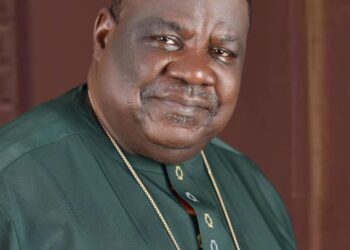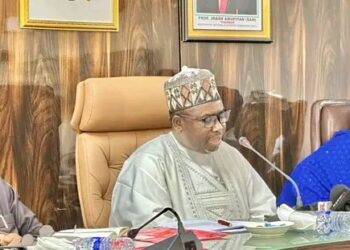The 147th IPU Assembly in Luanda, Angola, has become a significant stage for Nigeria’s Senate President, Senator Godswill Akpabio, as he leads a high-profile Nigerian delegation.
This diplomatic mission holds great promise for enhancing Nigeria’s bilateral relations with Angola and creating consensus on critical African issues.
Upon his arrival at the Luanda International Airport, Senator Akpabio was warmly welcomed by the Nigerian Ambassador to Angola, H.E. Professor Monique Oshame Ekpong, and high-ranking Angolan government officials led by Joao Diogo Gaspar, Deputy Secretary UIP Angola.
Gaspar expressed Angola’s honor at hosting the Nigerian Senate President, recognizing the potential for strengthened relations between the two nations and within Africa as a whole.
Senator Akpabio, clearly delighted to attend the IPU Assembly in Angola, commended the Angolan Government for their robust bilateral relationship with Nigeria.
He emphasized that Nigeria’s strong delegation at the IPU Assembly serves as an opportunity to consolidate bilateral relations. He stated, “Our presence here is to ensure that our bilateral relationship is strengthened.
With our presence, we can forge a strong bilateral parliamentary relationship for the interest of our nations.”
Senator Akpabio continued to lead Nigeria’s delegation by participating in the first meeting of The African Group at the IPU Assembly.
This active involvement underlines Nigeria’s commitment to diplomatic relations and collaboration on issues that matter most to the African continent.
The 147th IPU Assembly, hosted by the National Assembly of Angola, takes place from 21 to 27 October 2023.
It serves as a vital platform for parliamentarians, partner organizations, and experts to share best practices and focus on the overarching theme of “Parliamentary action for peace, justice, and strong institutions.”
This theme closely aligns with the United Nations Sustainable Development Goal 16: Peace, justice, and strong institutions, a cornerstone of global development.
The Assembly is set to discuss actions to enhance trust between people and governance structures, making public institutions more effective, accountable, and representative.
Additionally, it will equip parliaments to address the complex geopolitical, economic, and environmental challenges that our world faces.










